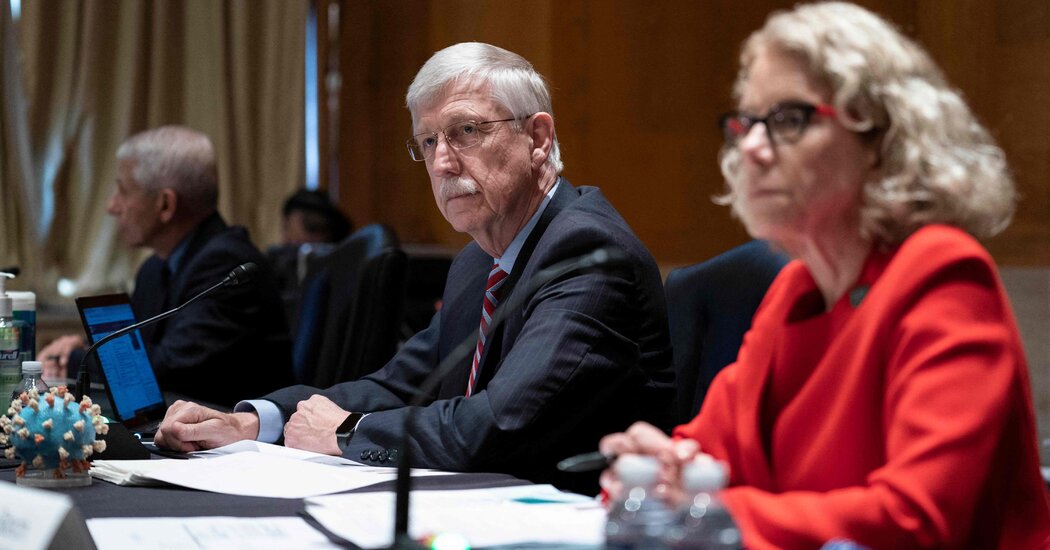
During the pandemic, Dr. Collins helped found a project involving partnerships and collaborations with pharmaceutical and biotech companies that enabled numerous trials of antivirals and other treatments for Covid-19 to run simultaneously.
Some scientists and public health experts have criticized the federal government’s efforts at studying Covid-19 treatments, saying some that ultimately did not show strong results — such as convalescent plasma and hydroxychloroquine — were prioritized over more rigorous research.
Dr. H. Clifford Lane, the clinical director at the allergy and infectious diseases branch of the N.I.H., said that Dr. Collins operated deftly amid a chaotic research environment, quickly mobilizing N.I.H. resources to study more promising treatments, including remdesivir and monoclonal antibodies.
Dr. Fauci said that Dr. Collins made a critical pivot from his expertise to the broader pandemic response. It was, he said, “really extraordinary to get someone who is fundamentally a geneticist, whose diseases involved cystic fibrosis and progeria, who turns out to be a valued colleague in the arena of infectious diseases, pandemics, public health.”
Dr. Collins almost stepped down early last year, Dr. Fauci said. One evening, he visited Dr. Fauci in his office and admitted that he was considering leaving for personal reasons. “I begged him not to step down,” Dr. Fauci recounted, “because, I said, ‘We are in the Trump administration. If you step down, we have no idea who’s going to get appointed as director. So we need you to stay on with us. Don’t leave now.’ And he understood that.”
Dr. Collins received a Ph.D. in physical chemistry from Yale in 1974 but decided molecular biology was more exciting. He spent years training anew. He also wanted to be a doctor, and earned his M.D. at the University of North Carolina.
He was not brought up with religion, but when a patient asked Dr. Collins if he believed in God, he realized, he has said, that he did not know. He began reading widely and was persuaded by the writer and theologian C.S. Lewis, who said faith could be a rational choice. At 27, he became a nondenominational evangelical Christian.
